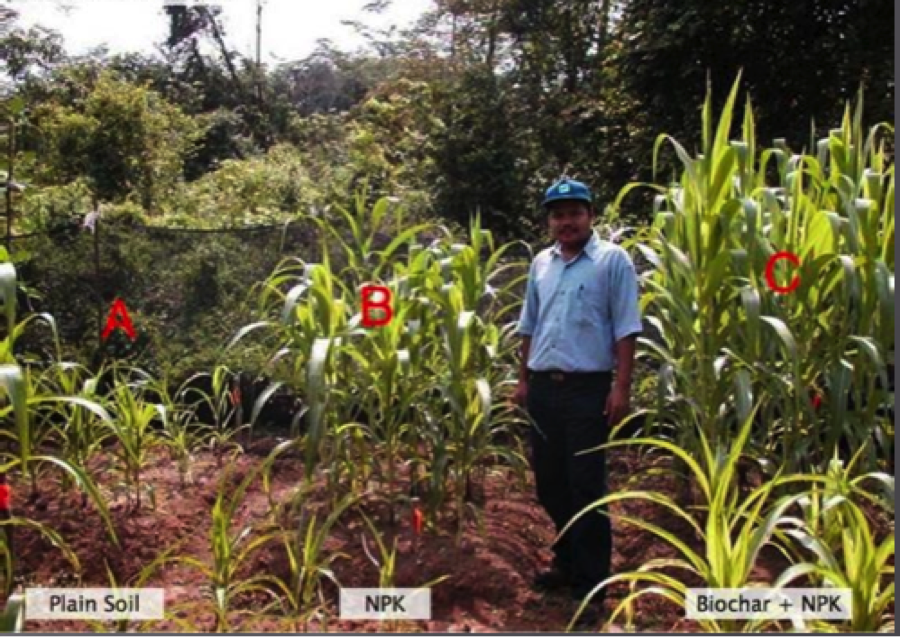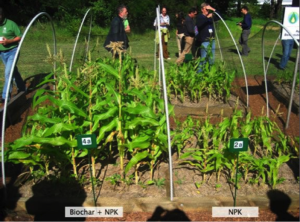Minneapolis and Shakopee Mdewakanton Sioux Community Garden

Recently, the people of Minneapolis have taken the initiative to improve their environment by using biochar. The city faced several urban challenges, including enhancing health in minority communities, reducing storm damage in the urban canopy, and increasing access to locally grown foods. To address these issues, Minneapolis proposed purchasing biochar as part of its environmental initiative.

Knowing that biochar is a powerful soil amendment, the city wanted to test its effectiveness firsthand. After the proposal was approved, they set up demonstration plots to compare results. They established three plots: one without treatment, one with compost, and one with a mix of compost and biochar. These plots were located on Mdewakanton Sioux land and within the Minneapolis urban core.

Once the results were in, the difference was clear (see left). The plot with compost and biochar stood out as the clear winner, showcasing the incredible benefits of biochar in the soil.
Encouraged by these results, Minneapolis expanded its efforts by setting up five demonstration gardens across the city. Each garden focuses on a unique area of interest, but they all share a common goal: to demonstrate how biochar can support more productive crops.





